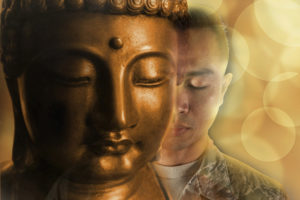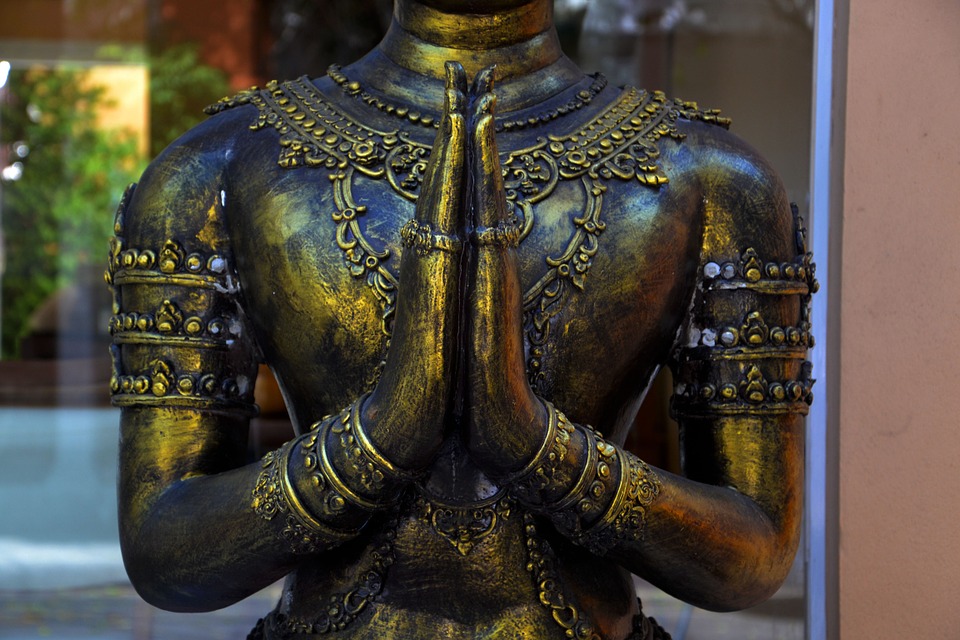If and when practicing Buddhism, you will come across various principles grouped together. Examples are the: Four Noble Truths, Eightfold Path, Three Poisons (if you are studying Tibetan Buddhism), Ten Meritorious Deeds, and so forth. You will come across a group of principles known as the Three Universal Characteristics. This concept is interlinked with the other core concepts of Buddhism. The website is known as “Buddhist Door” gives a brief explanation of the concept. The three concepts are the following: impermanence – all phenomena are impermanent, not-self – all Dharma is not-self, and suffering – all sensations are suffering.
The First Universal Characteristic
The first Universal Characteristic is also known as “Anitya.” The brief explanation for Anitya is that “nothing is forever.” Buddhist Door explains that the body is impermanent, the mind is impermanent, the feeling is impermanent, and so forth. There are various examples of Anitya that can be used.
One example would be the manga turned Japanese anime and manga series called “Death Note.” At the end of each Death Notebook, there is an important rule: “All humans, without exception, will eventually die.”
 Even whole universes are not forever despite having a life span of several hundred billion years. This was touched upon in the modern-day adaptation of the popular British science fiction series called “Dr. Who.” Near the end of one of the seasons, the Tenth Doctor, Martha Jones, and Captain Jack Harkness ended up at the end of the universe as it was about to die out.
Even whole universes are not forever despite having a life span of several hundred billion years. This was touched upon in the modern-day adaptation of the popular British science fiction series called “Dr. Who.” Near the end of one of the seasons, the Tenth Doctor, Martha Jones, and Captain Jack Harkness ended up at the end of the universe as it was about to die out.
There is also the Chinese saying of “no fortune lasts for longer than three generations.” In this respect, fortune does not last forever. The same can be applied to fame.
This can be applied to the Four Noble Truths. If you cling to what is destined to disappear inevitably, you will end up suffering.
According to the website for the Buddhapapipa Temple, this first characteristic explains that all things have the nature to change. One prime example would be the concept of the martial arts style called Tai Chi Chuan. Tai Chi Chuan has a concept of building up your “Qi” or internal power. As we get older, our bodies become weaker. Thus, we lose external power. In this respect, external power is impermanent.
A recent article by Laura Sessions Stepp of the Washington Post talks about mean girls in that respect. High school bullies could grow out of that phase. In this case, a bully does not remain a bully forever.
“Metal Gear Solid 3: Snake Eater” also touches base upon that characteristic. Allies do not stay allies forever. During World War II, the United States and Russia were allies in fighting against the Axis Powers. After World War II, the United States and Russia were opponents during the Cold War. What is considered good, bad, and so forth is subjective? Our perceptions of those aspects change. In short, our perceptions of good and bad are not forever.
The Second Universal Characteristic
The Second Characteristic is known as “Anatma.” It means that we are ourselves. However, Buddhism does not reject convenient meaning. There lies the question: What are you? You can answer with your name; but, you could get this question in response: Are you a name? If you say, male, you can be asked: Are you a gender?
It is linked with the first character in which there are things out of our control. We have no control over how we age or how fast we do. Anatma emphasizes rejecting the notion of “self.” Instead of defending ourselves, we respect others. We treat others equally for the most part. In this respect, we are encouraged to show empathy. In short, it stresses the concept of selflessness.
The Third Universal Characteristic
The third and Final Universal Characteristic is known as “Duhkha.” It explains that suffering is not forever. It can be a lifetime only if we choose it to be. According to the Four Noble Truths, clinging leads to suffering. If you cannot let go, then you will suffer. This also plays into the concept of Buddhism’s Three Poisons, in which the first poison is greed/desire. We can desire something and be greedy about it. Then, we are held, prisoner. Thus, we suffer.
These are the basic principles of Buddhism. As a Buddhist, this is something you need to know and understand. There are many examples that can be used.





